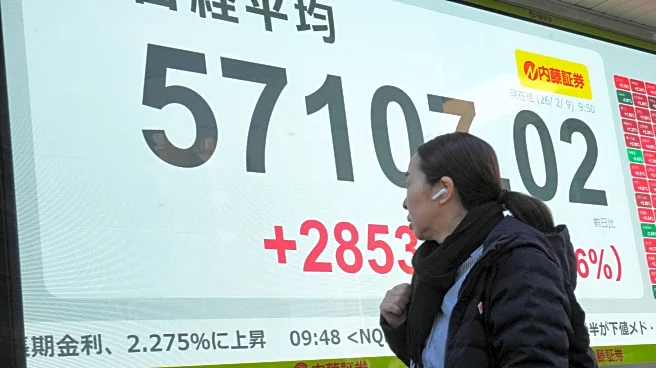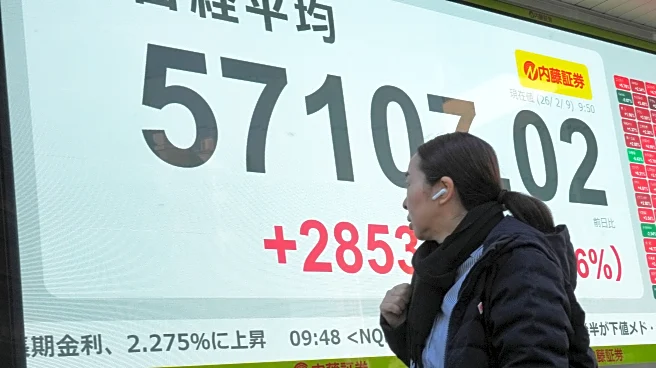Rapid Read • 8 min read
Economists are evaluating the potential impact of President Trump's tariff policies on inflation and the broader U.S. economy. Since the announcement of sweeping tariffs on April 2, inflation has been a concern, with the consumer price index showing a 2.9% increase year-over-year as of June. The tariffs include a 10% blanket tariff on all countries, a 30% tariff on Chinese goods, and varying tariffs on imports from Mexico and Canada. Economists like Raymond Sfeir from Chapman University suggest that tariffs are inflationary, as they increase costs for businesses, which are often passed on to consumers. Rebecca Homkes from London Business School highlights the uncertainty created by these tariffs, which can lead to reduced business spending and hiring, potentially causing an economic slowdown.
AD
The tariff policies could have significant implications for the U.S. economy, potentially leading to higher consumer prices and reduced consumption. This situation may result in a slowdown, affecting employment and economic growth. The uncertainty surrounding tariff implementation is particularly concerning, as it can disrupt business planning and investment. If other countries retaliate with tariffs on U.S. goods, exports could decrease, exacerbating economic challenges. The Federal Reserve, led by Jerome Powell, is monitoring the situation closely, considering potential interest rate adjustments based on inflation trends. The economic uncertainty is reflected in fluctuating recession risk assessments, with J.P. Morgan adjusting its recession probability from 60% to 40% in recent months.
The Federal Reserve is expected to maintain a cautious approach, potentially adjusting interest rates later in the year if inflation remains stable. Economists anticipate that the full impact of tariffs on consumer prices will become more apparent in the coming months, as businesses exhaust pre-tariff inventories. The possibility of retaliatory tariffs from other countries remains a concern, which could further impact U.S. exports and employment. Stakeholders, including businesses and policymakers, will need to navigate this period of economic uncertainty, balancing inflationary pressures with growth objectives.
The tariff-induced uncertainty highlights broader issues in economic policy-making, including the need for clear and predictable trade policies. The situation underscores the interconnectedness of global economies and the potential for domestic policies to have international repercussions. Long-term shifts in trade relationships and supply chains may result from prolonged tariff disputes, affecting industries reliant on international trade.
AD
More Stories You Might Enjoy













